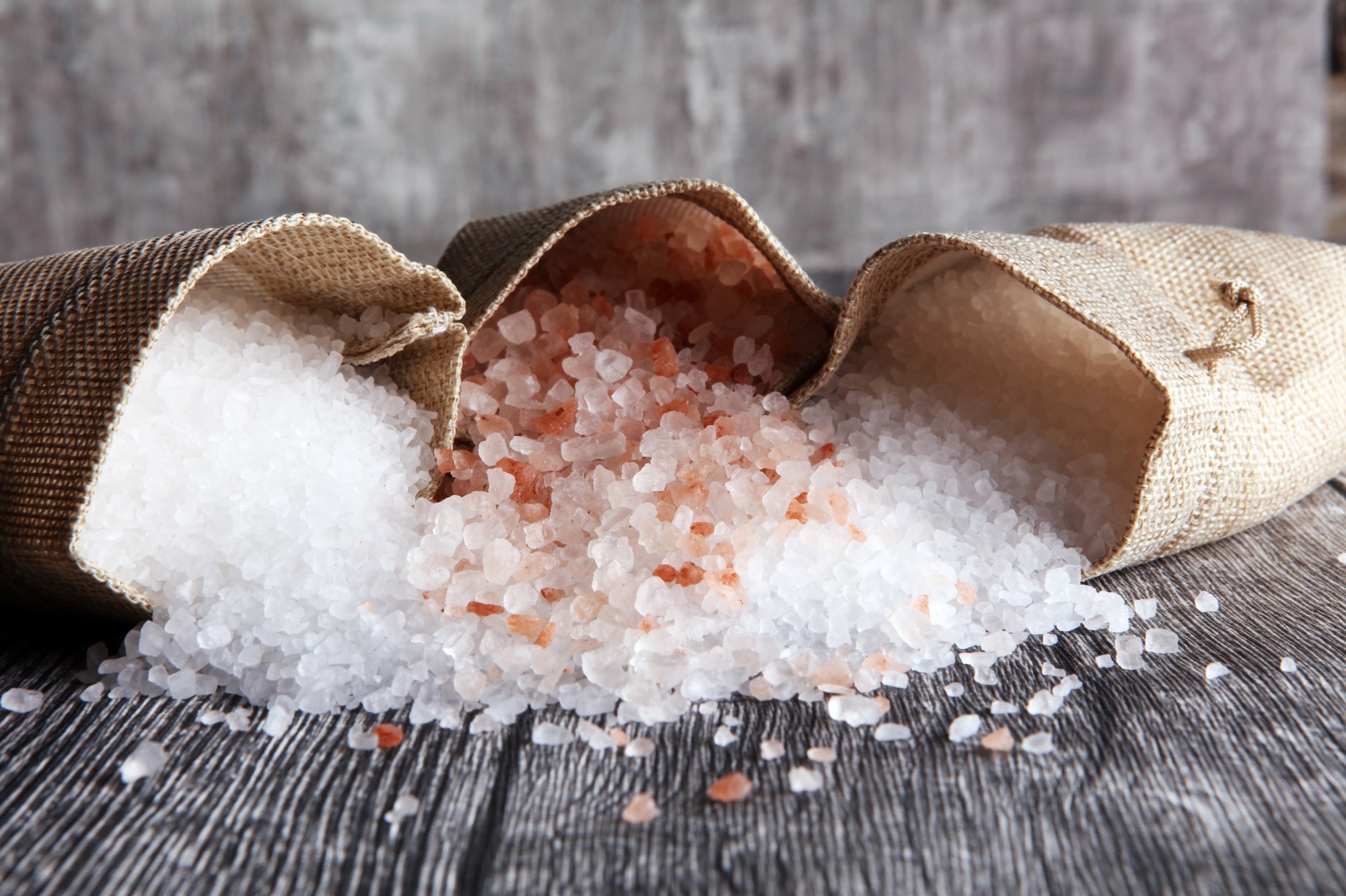In a recent review article published in Nutrients, researchers explored the dual role of sodium in water balance regulation and food formulation, noting its significant association with mortality due to excessive intake.
Their conclusions underscore the importance of reducing sodium intake, promoting a global healthy lifestyle that includes both dietary adjustments and physical activity, and implementing educational interventions to optimize sodium balance and overall health.
 Study: Effect of active-duty military service on neonatal birth outcomes: a systematic review. Image Credit: beats1/Shutterstock.com
Study: Effect of active-duty military service on neonatal birth outcomes: a systematic review. Image Credit: beats1/Shutterstock.com
Need to control sodium intake
Sodium, crucial for extracellular fluid regulation and food science, poses risks when overconsumed. Global studies reveal high intake levels with associated cardiovascular risks.
This has made reducing sodium in processed foods a global priority for public health agencies, and efforts are underway to reduce sodium in processed foods. While theoretical solutions exist, practical implementation requires addressing multiple factors such as taste, texture, and cost, highlighting ongoing efforts in food processing.
The reduction or replacement of sodium in processed foods presents complex technological challenges. Strategies include reducing added salt, replacing sodium chloride with alternative salts or ingredients, and optimizing salt distribution for enhanced perception.
However, global progress in reducing sodium intake has been low, and multidisciplinary approaches involving health professionals are needed to address this health challenge effectively.
The Canadian government took initiatives to manage the excess sodium intake, including voluntary reduction targets and front-of-pack labeling regulations. Still, these efforts showed mixed success, suggesting that more than voluntary measures alone may be necessary and necessitate broader interventions.
Possible solutions involve reducing sodium content in processed foods through policy interventions and enhancing individuals' capacity to manage sodium intake, primarily through the guidance of health professionals such as dietitians.
Dietary interventions
Processed foods, notably prepackaged or prepared items, significantly contribute to sodium intake in the diet, with staples like processed meats, cheese, and bread being major sources.
Studies indicate that reducing salt content in bread does not necessarily impact sales, suggesting potential for sodium reduction without compromising consumer acceptance, aligning with efforts to address excessive sodium intake.
The Dietary Approaches to Stop Hypertension (DASH) diet, recommended for hypertensive patients, emphasizes potassium-rich foods while limiting the intake of sodium and saturated fats. Clinical studies consistently show its effectiveness in reducing blood pressure, even in individuals with type 2 diabetes.
Despite challenges like high sodium preference in certain populations, DASH diet implementation through counseling and support strategies can aid in sodium reduction and hypertension management.
Generating awareness of using salt-free seasonings, herbs, and spices can allow individuals to enhance food flavor without adding salt, potentially reducing sodium intake while maintaining taste satisfaction.
Clinical studies suggest that replacing salt with low-sodium-salt substitutes (LSSS) may decrease sodium intake and slightly reduce blood pressure and cardiovascular risk. Still, concerns exist about potential adverse effects, particularly in high-risk populations, including people with chronic kidney disease.
Research highlights the role of gut microbiota in cardiometabolic health, with studies showing the benefits of Lactobacillus rhamnosus probiotic supplementation on body composition and cardiometabolic markers.
Recent findings suggest a link between gut microbiota depletion, high sodium intake, and blood pressure regulation, offering promise for microbiota-targeted interventions to improve sodium homeostasis.
Digital platforms, like social media and electronic brochures, effectively supported a salt reduction initiative in the United Arab Emirates, with social media groups showing the most significant decrease in salt intake.
Smartphone apps offer potential for DASH diet adherence, although their clinical effectiveness remains uncertain, emphasizing the need for further research and app improvement to maximize their public health impact.
Mindful eating practices, such as those in the Mindfulness-Based Blood Pressure Reduction program, may improve compliance with low-sodium diets by promoting awareness of food choices.
Improvement in emotional regulation can also mitigate the consumption of comfort foods that are high in sodium.
Integrating these dietary strategies into interventions may effectively reduce sodium intake, complementing population-based approaches like policies to reduce salt and enhancing food labeling practices.
Physical fitness and activity
Recent findings suggest a complex interplay between body composition, aerobic fitness, and sodium intake, particularly in females. Interaction effects revealed a less favorable body composition profile in females with high sodium intake and low fitness levels.
Mediation analysis indicated that both aerobic fitness and sodium intake mediate the association between body fitness and the genetic risk of obesity.
Additionally, maintaining regular physical activity levels may mitigate the harmful impacts of high sodium intake, possibly through mechanisms like sweat sodium loss and reduced salt sensitivity.
These insights advocate promoting physical activity alongside dietary sodium reduction strategies to achieve optimal sodium balance and metabolic health. Further research is warranted to elucidate the underlying mechanisms.
Conclusions
In summary, the crucial role of sodium in body homeostasis necessitates careful management to avoid cardiometabolic issues. While progress has been made in reducing sodium in processed foods, achieving optimal balance requires multifaceted interventions.
These include nutritional counseling, lifestyle changes like increased physical activity, and potential microbiota modifications to promote sodium balance and overall health.
Journal reference:
-
Tremblay, A., Gagné, M., Pérusse, L., Fortier, C., Provencher, V., Corcuff, R., Pomerleau, S., Foti, N., Drapeau, V. (2024) Sodium and human health: what can be done to improve sodium balance beyond food processing? Nutrients. doi:https://doi.org/10.3390/nu16081199. https://www.mdpi.com/2072-6643/16/8/1199